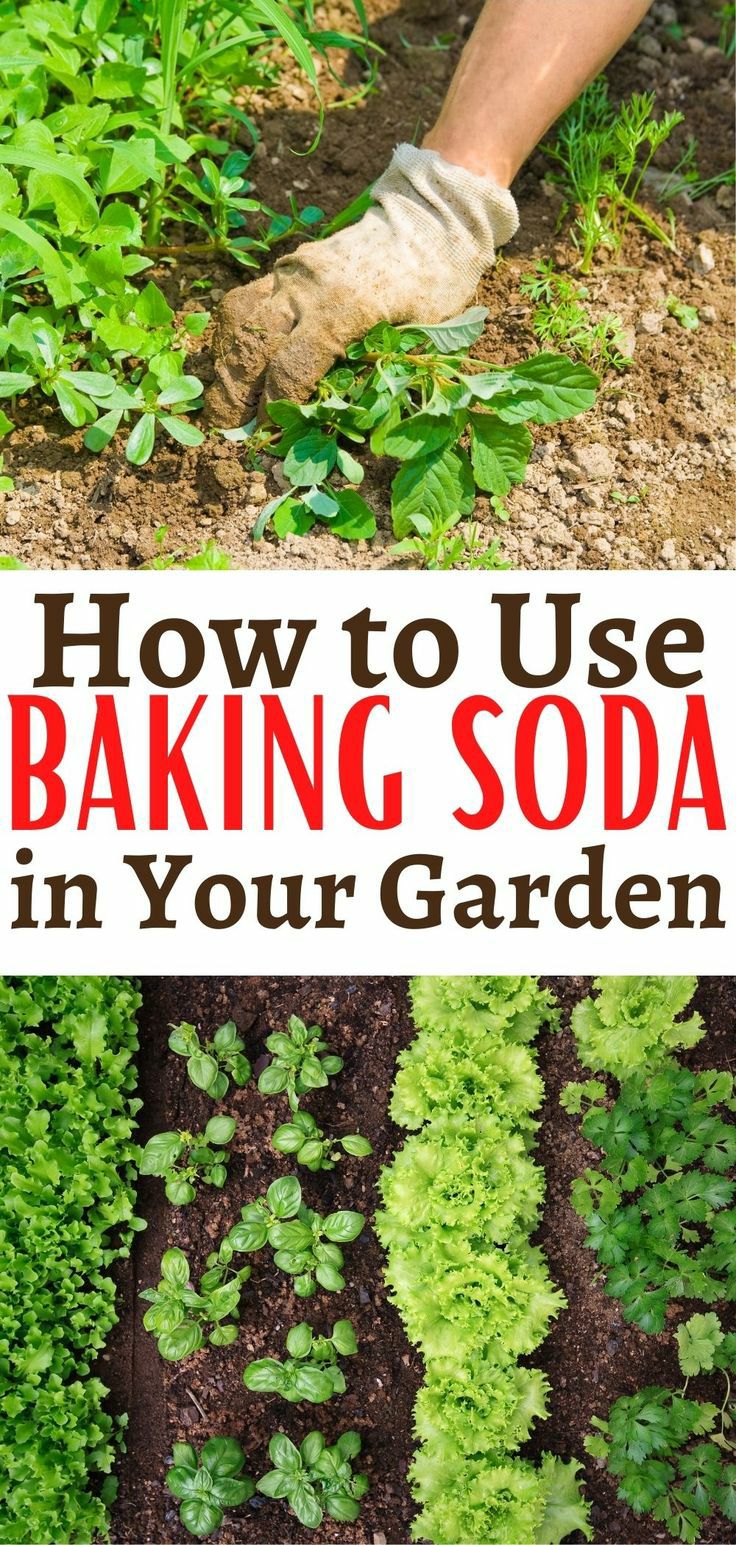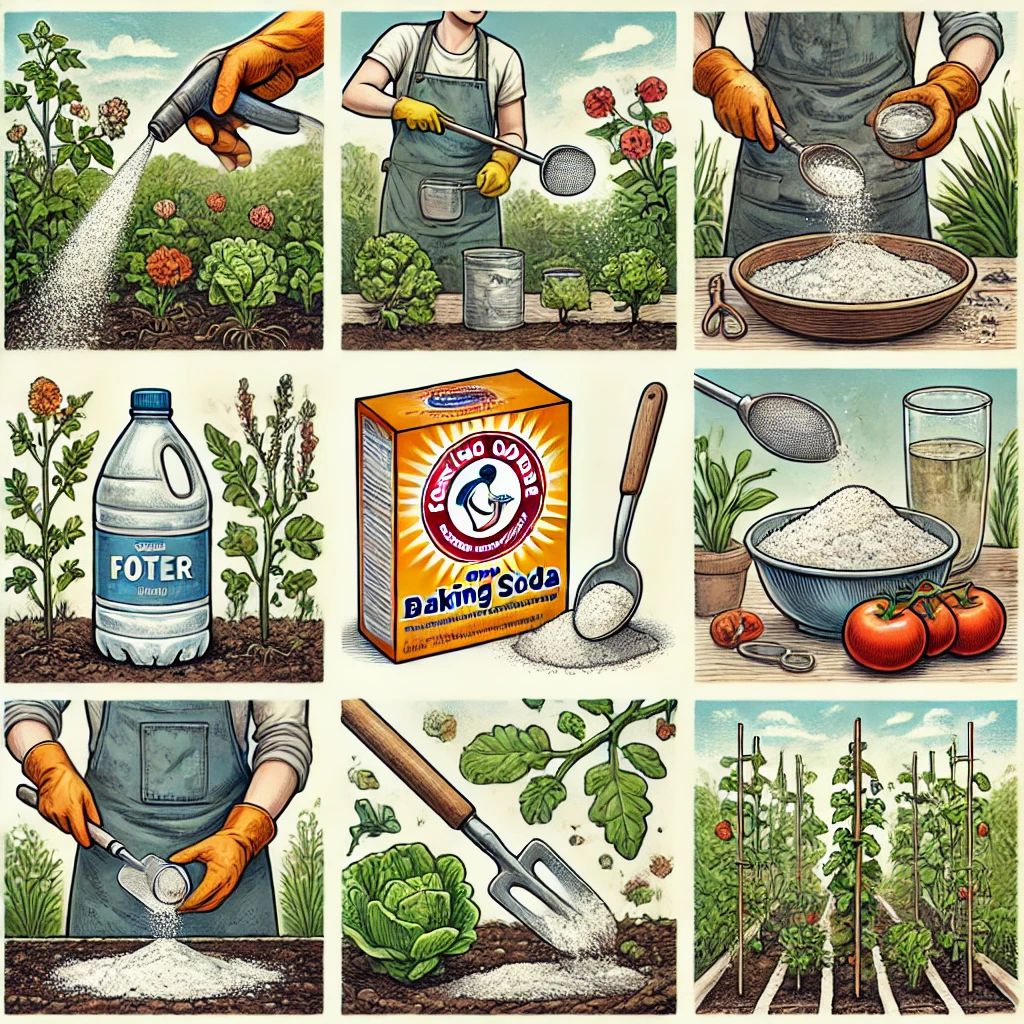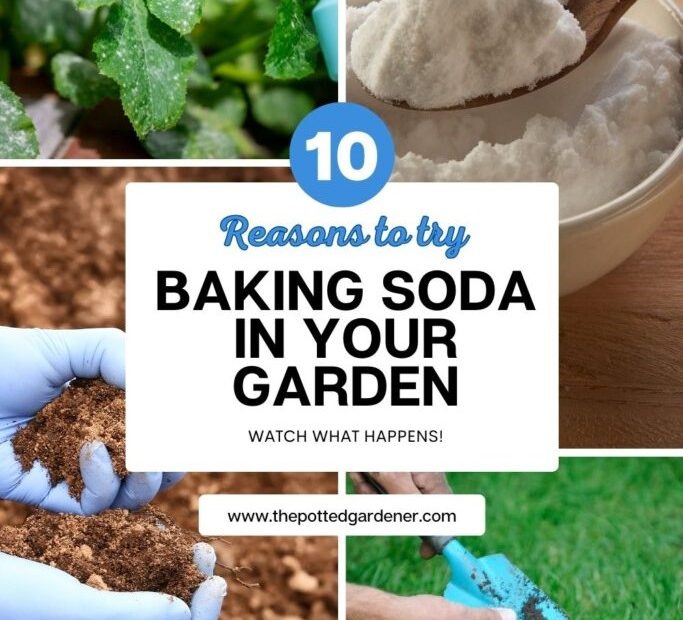Baking soda, or sodium bicarbonate, is a versatile substance commonly used for baking, cleaning, and even in gardening. Many gardeners swear by its effectiveness for a variety of tasks in the garden, from fighting pests to improving soil conditions. However, not all of these uses are as effective or harmless as they may seem. Here, we take a closer look at the popular claims about using baking soda in gardening, its potential benefits, and the considerations you should be aware of.
1. Natural Fungicide
One of the most common uses for baking soda in the garden is as a natural fungicide. A mixture of baking soda, water, and liquid soap can be sprayed on plants to combat fungal diseases such as powdery mildew. While baking soda can help prevent fungal growth by altering the pH of the plant surface, it can also have negative effects on the plant if used excessively. It may disrupt the natural balance of microorganisms, leading to further problems for your plants. So, while it may provide some relief, it’s not a foolproof solution and should be used with caution.

2. Weed Killer
Baking soda is often touted as a non-toxic weed killer. By directly applying it to weeds, it can supposedly kill them without harming surrounding plants. However, baking soda is high in sodium, which can accumulate in the soil and potentially harm other plants over time. While it might work in small, targeted applications, long-term use could lead to soil imbalances that are detrimental to the overall health of your garden.
3. Pest Deterrent
A common recommendation for dealing with pests like cabbage worms and aphids is to create a mixture of baking soda and flour and dust it on your plants. While some gardeners report success with this method, its effectiveness has not been scientifically proven. It may have some short-term results, but it is unlikely to be a reliable solution for pest control in the long run. More effective, environmentally-friendly alternatives may be available.
4. Soil Amendment
Baking soda can help neutralize overly acidic soil, making the environment more conducive to plant growth. However, using too much baking soda can raise the pH of the soil to levels that are too alkaline for certain plants, potentially stunting their growth. It’s essential to test your soil before adding baking soda and monitor the results closely to avoid causing imbalances.

5. Tomato Sweetener
Some gardeners swear by sprinkling baking soda around tomato plants to reduce soil acidity, resulting in sweeter tomatoes. While it is true that less acidic soil can potentially enhance the flavor of tomatoes, there is no conclusive scientific evidence to support the claim that baking soda has a significant impact on the sweetness of tomatoes. Again, moderation is key when using baking soda in your garden.
6. Compost Enhancer
Baking soda has been suggested as a compost accelerator by increasing the alkalinity of the compost pile. While slightly raising the pH may help speed up the decomposition process, too much baking soda can disrupt the delicate balance of microbes that are essential for proper composting. It’s important to use baking soda sparingly and monitor the compost’s temperature and moisture levels to ensure it remains healthy.
7. Odor Absorber
Baking soda is well-known for its ability to neutralize odors, and it can be used in the garden to control smells in areas like compost bins. Sprinkling baking soda in these areas can help reduce unpleasant odors. However, excessive use of baking soda may lead to an imbalance in the compost pile, affecting its overall health.
8. Tool Cleaner
Another popular use for baking soda is as a cleaning agent for gardening tools. By making a paste of baking soda and water, gardeners can scrub their tools to remove dirt, rust, and grime. Baking soda is an effective cleaner, but it’s important to ensure that tools are thoroughly rinsed afterward to avoid leaving any baking soda residue.
9. Seed Germination
Some gardeners recommend soaking seeds in a baking soda solution before planting to enhance germination rates. While this method has not been scientifically validated, some gardeners claim that it helps break down seed coatings and encourages faster sprouting. More research is needed to determine if this method has any real benefits.
10. Ant Repellent
Baking soda is also said to work as an ant repellent. By creating barriers around plants or along ant trails, baking soda supposedly deters ants. However, this method is not always effective, and ants may find alternative routes. Again, while it may work in some cases, it’s not a foolproof solution.
Conclusion
Baking soda is a useful tool in the garden, but like all garden treatments, it should be used thoughtfully and with awareness of its potential effects. While it can help in certain situations, overuse or improper application can lead to negative consequences for your plants and soil. As with any gardening practice, it’s best to experiment carefully, and always consider alternatives to ensure you’re fostering a healthy and thriving garden.
Before applying baking soda in your garden, it’s recommended to test it on a small area and monitor the results closely. Always keep in mind that moderation is key!



